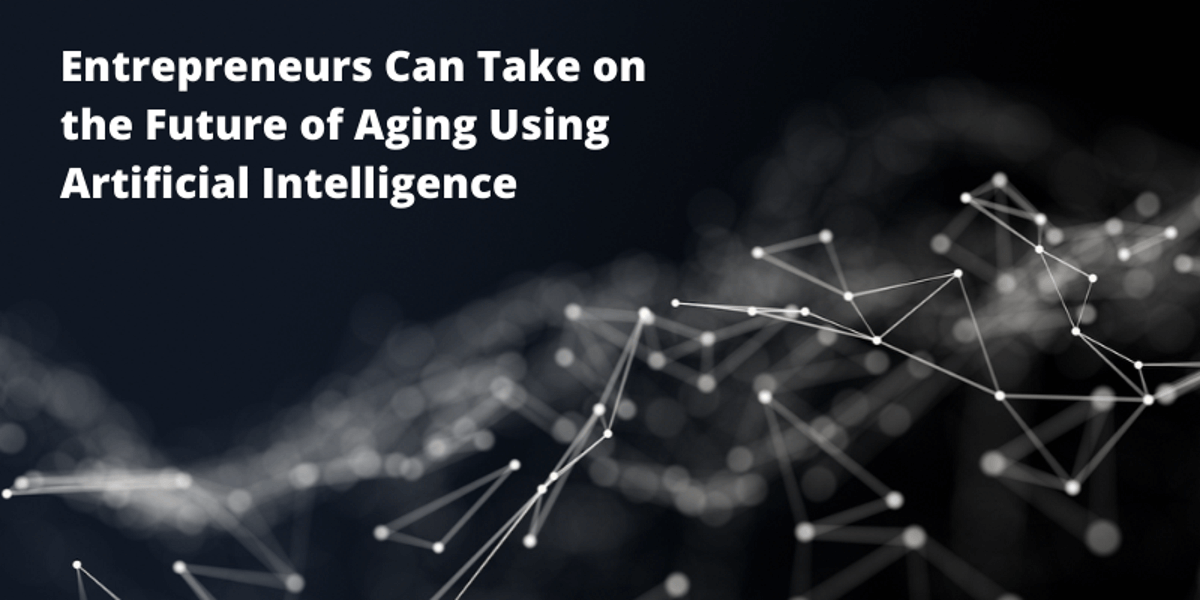Healthcare is a booming industry and there are several ways in which artificial intelligence is causing the next revolution in this domain. From automated dental scan analysis to predictive and preventive regimes, AI is the technology to look for in healthcare. Wearables can be spotted on everyone today, and that shows the reach of AI in our lives. As medical science helps us live longer, they are now presented with a new set of challenges. The elderly need a different set of problems to be solved by AI and entrepreneurs are taking note of the gaps being felt in this area and the potential it possesses. It is predicted that the population of those under 18 will be surpassed by that of those over 65 sooner than we expect. This also means that healthcare costs for this age group of society will be much higher than those of their younger counterparts.
What are some of the problems that the elderly face today?
The elderly face similar problems across geographies. These include:
- Loneliness
- Depression
- Physical issues due to falls
- Hearing loss
- Vision issues
- Problems in coordination
- Cognitive decline
Emotional well-being – AI acting as a bridge
The elderly face a growing number of issues including but not limited to loneliness, depression, cognitive decline, and involuntary isolation amongst others. These problems are not unique to an individual and afflict nearly everyone no matter where they are. Companies like Google, Amazon and their ilk have been trying to solve these problems with innovative AI-powered devices that not only been making the lives of the elderly easier but have quietly been helping them increase their social interactions and spend quality time with others and their family members no matter where they are.
Smartphones and connected devices like Alexa and Google Home can help the elderly stay in touch with their family members without having to constantly get up and pick up the phone, along with assistants in phones like Google, Alexa and Siri, which can help them do tasks that might otherwise require some training. Watching family videos, photos and enjoying events that occur across geographies is also easier with the help of reminders and the availability of video calls. Talking robots like ElliQ is also promising engagement with users to ensure that verbal and physical communication can occur with intelligent machines as well.
Physical well-being and impairments
Devices like Alexa and google home help the elderly give voice commands for common tasks that they would have otherwise needed aid for. These devices also help those who are visually or physically impaired to listen to the news, read out texts and interact with their family members. These devices can also help them with basic tasks like telling the time of the day, helping them with weather forecasts and ensuring that they took their medicine in time. These devices also ensure that their rooms are well lit and can switch off lights and help them wind down for the day by using intelligent lighting and HVAC systems.
Mobility and cognitive decline – AI to the rescue
The number of ER visits for the elderly is mostly due to falls and health issues due to missed medications. AI helps these individuals by ensuring adequate lighting when needed and reminders for medications. The cognitive decline also needs constant repetition for simplistic needs, which is not a problem for AI-enabled devices. Today, AI-driven night lights like the Glow Light by Casper and the Mi Bedside Lamp by Xiaomi can ensure adequate, yet not obtrusive lighting in the room, reducing the number of fumbles and falls by the elderly. AI-driven motion sensor lights can switch on automatically as people enter, ensuring that there is no need to look for switches for mobility-impaired individuals and those with minor vision loss. Automated night lights also help the elderly to sleep better by ensuring a warm, calming glow at night and a brighter light at day time. This, coupled with the capability of VAPAs to notify family and emergency services can also give non-intrusive ways of keeping tabs on their loved ones without affecting their independence or self-esteem. AI-enabled wearables like the Apple Watch can also detect falls and irregular heart rates and also notify services along with family members to ensure that healthcare is available in the time of need.
Challenges – The acceptance of AI
AI is promising and is showcasing an increased presence in the medical and communicative domains. Entrepreneurs have been making a beeline to ensure that they have products that help the elderly lead better-connected devices. From wearable tech to communication systems along with intelligent music players, AI has a role nearly everywhere in our lives, but the challenge is of acceptance. The elderly often have cognitive deficits or impairments that may require very frequent training and retraining to ensure that they use their devices well. If introduced earlier in life and with continued usage, AI-enabled devices get smarter over time, learn patterns and can help the elderly lead connected, comfortable lives. Although these devices cannot replace human contact or the quality of human touch, they can certainly help those in need and reduce the financial burden of elderly care to the maximum extent possible.
The business case for AI appears to be very promising and the promise of a positive impact of AI on the lives of the elderly coupled with the capability to interact with their family. A measurable impact of AI would be reduced expenditures on healthcare and enhanced independence for seniors along with emergency reportage and aid. Empathetic applications of AI can also provide reassurance and build confidence in living by themselves.

